Benchmarks: Graphics - Part Two
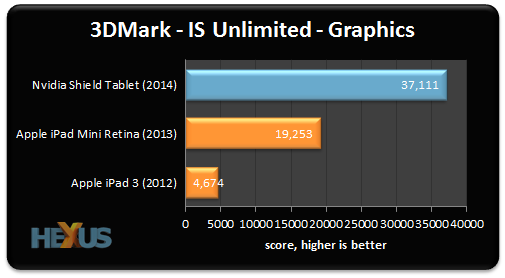
3DMark's Ice Storm Unlimited renders frames offscreen in a 720p resolution to provide comparable SoC results. The graphics test first stresses the hardware's ability to process lots of vertices and then lots of pixels, with the inclusion of post-processing effects such as bloom and motion blur. Shield Tablet heads the pack by some distance.
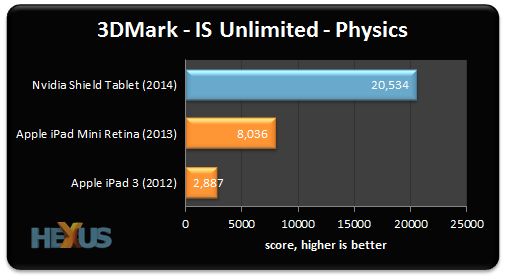
The physics test has two soft bodies and two rigid bodies colliding with each other in four simulated worlds. Such a workload should be challenging for a mobile processor, but Nvidia clearly has the expertise in this area.
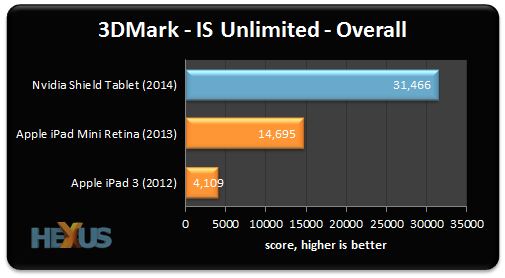
There's no doubt in 3DMark's mind: Tegra K1 brings significant graphics performance to compact tablets.
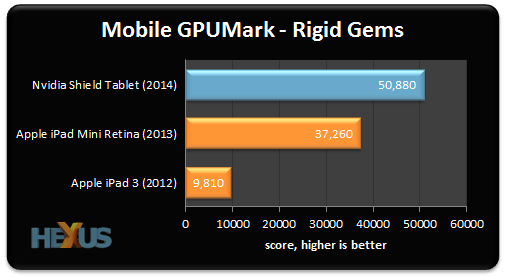
The Rigid Gems component of Mobile GPUMark measures shader, post-effect and physics performance. Guess who comes out on top?
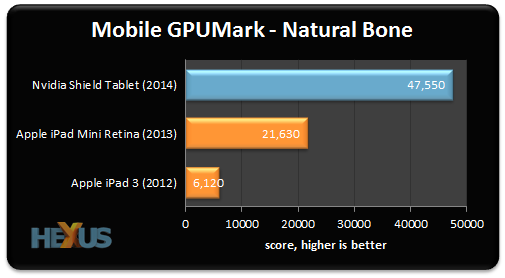
The performance gap is even wider in the Natural Bone test, which measures rendering performance of a high-resolution 3D model.
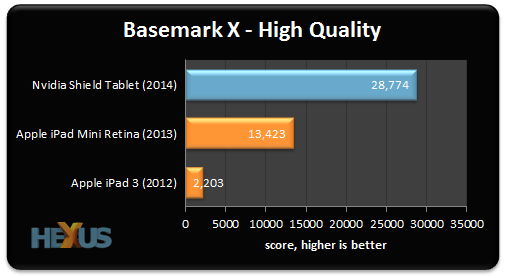
Basemark X may be a more relevant benchmark to gamers as it uses the popular Unity 4.2 game engine, meaning the results here can be an indication of real-world gaming performance. There are no surprises: the K1's Kepler-based GPU is far superior to the PowerVR GPU in Apple's A7.









